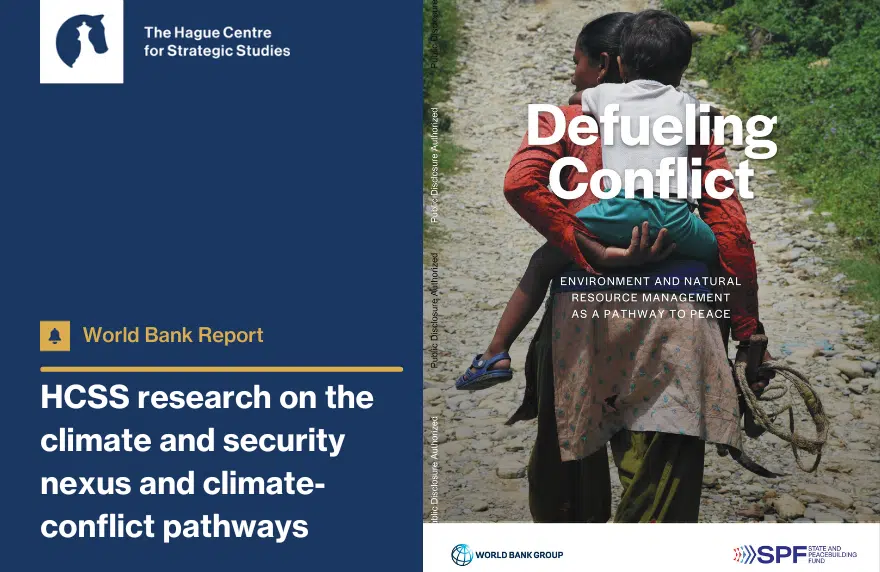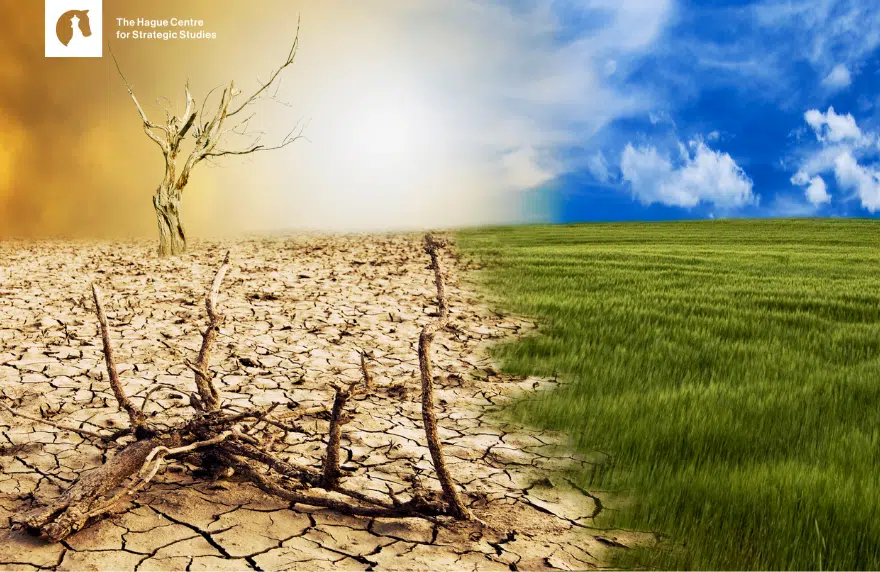HCSS is proud to announce that the World Bank Report “Defueling Conflict : Environment and Natural Resource Management as a Pathway to Peace” extensively references our research on the Climate and Security nexus.
Section 2 of the report, Natural Resources, Climate Change, Fragility, and Conflict Risks and Linkages, lists a number of typologies of risks and drivers of conflict and natural resources. The section provides an overview of the potential pathways through which climate change can contribute to conflict and fragility based on “Unpacking the Climate Security Nexus: Seven Pathologies Linking Climate Change to Violent Conflict (2022),” a report by the Hague Centre for Strategic Studies.
This resource and others listed in Section 6 evaluate the available evidence, the degree of scientific consensus, and how to address these risks.
The seven pathways identified by the HCSS report describe how climate factors may lead to conflict:
- Climate change-related resource scarcity can lead to conflict between pastoralist and sedentary communities.
- Climate change-related resource scarcity can lead to inter-communal violence and social unrest
- Climate change can precipitate internal migration, which may lead to social unrest.
- Climate change-related social unrest can empower non-state armed groups.
- Interventions aimed at mitigating the effects of climate change can have adverse effects.
- Climate change-related social unrest can precipitate large-scale political movements, provoking a government crackdown.
- Disputes over transboundary resources can cascade into intrastate conflict.
For each pathway, the HCSS study identifies the relevant factors, describes how they interact with one another, and elucidates the paths through which they may lead to violent conflict. The report also highlights regions that are particularly prone to each pathway and evaluates the available evidence and the degree of scientific consensus surrounding each of them.
Additionally, the HCSS report offers relevant insights for policy making. The mediating factors associated with each of the climate-related conflict pathways outlined can be actively targeted to proactively reduce the risk of climate change resulting in the onset of conflict in vulnerable states.
Download the full World Bank Report | “Defueling Conflict: Environment and Natural Resource Management as a Pathway to Peace” here (PDF).
Download the HCSS report “Unpacking the Climate Security Nexus” by Tim Sweijs, Marleen de Haan, Hugo van Manen here (PDF):








